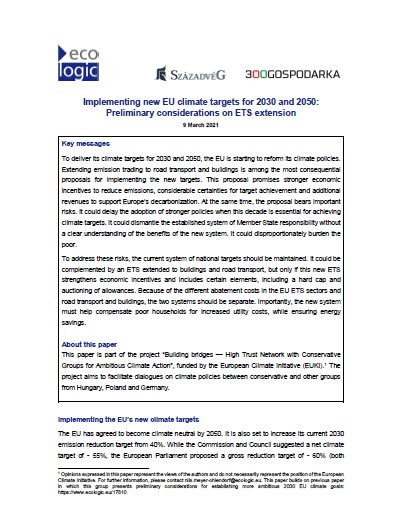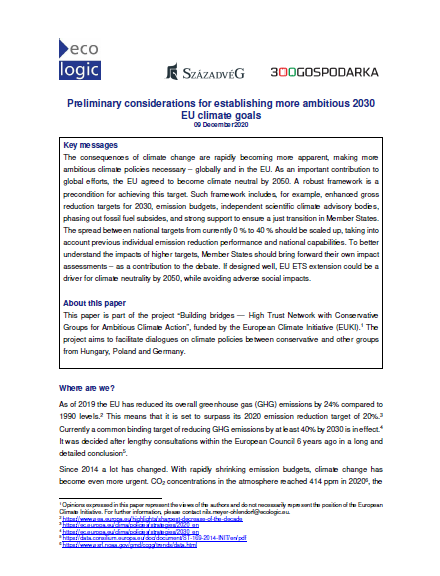Europe's Economic Recovery – How can the Recovery and Resilience Facility support achieving climate neutrality?
- Publication
- Citation
Szazadveg Foundation, 300Gospodarka, Ecologic Institut 2020: Europe's Economic Recovery – How can the Recovery and Resilience Facility support achieving climate neutrality?. Berlin.
In July 2020, the European Council agreed on an unprecedented EU recovery package – dubbed Next Generation EU. This agreement contains elements that will advance EU climate policies. However, if it is to pave the way to climate neutrality by 2050, it needs to improve. To support achieving climate neutrality by 2050, the EU recovery package should
- allocate around 40 % of funding to the transition towards climate neutrality,
- link its climate spending target to the EU Taxonomy Regulation,
- establish a solid framework to make sure that EU expenditures only support investments that are compatible with the 2050 climate neutrality objective, (
- enable Member States to spend recovery funds for climate protection by granting them more time to implement investments, and
- establish an institutional set up for the distribution of recovery funds that supports climate policies, ensures democratic legitimacy and allows swift payment.
These are the main conclusions of a joint paper by Szazadveg Foundation, 300Gospodarka and Ecologic Institute. This paper is part of the project "Building bridges – High Trust Network with Conservative Groups for Ambitious Climate Action", funded by the European Climate Initiative. The project aims at facilitating dialogues on climate policies between conservative and other groups from Hungary, Poland and Germany.

